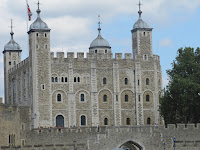 I have dealt with a number of companies during several decades in marketing and consultancy and observed how they variously trade with other countries.
I have dealt with a number of companies during several decades in marketing and consultancy and observed how they variously trade with other countries.The main thrust of the 'Remain' campaign in the upcoming referendum on EU membership seems to increasingly rest on the assertion for the UK economy flourishing within the EU or with all sorts of upheaval and disaster predicted should the UK quit the EU. Even Government statistics show that despite expanding in membership, the EU continues to lose share of global GDP falling from 30% in 1993 to 24% in 2013. What's more the proportion of UK trade with the EU has fallen consistently since 1999, while trade with non-EU countries is growing.
So what about this famous single market of 500 million customers that we will somehow be excluded from selling to? But what about the quality of these millions of customers. Are they in fact even customers or prospects at all. If the single market is so essential why are countries like Greece all but broke? Why if it makes goods cheaper do the British pay more for cars, many food items, travel and loads more? The truth is that there are not 28 countries waiting to buy British goods, but probably only a few and of these only Germany that is a serious world player. The rest range from former USSR occupied countries, basket case economies and over regulated inefficient old fashioned economies. The reason the EU bag of all sorts is destined to fail is the rest of the world is surging ahead.
Does the UK want to stay on a sinking ship or take to the life boats?
Lets consider three broad categories of companies operating in the UK:
- Country divisions of major global companies.
- UK based companies that export products or services.
- UK companies that do not export at all.
The global companies tend to divide up the world into huge areas and Europe is not generally one of them but tucked in with the Middle East and Africa. American companies I have been involved with are surprised that Europe is not one place but a collection of countries of varying size, varying customs and their own languages! One American boss I reported to would phone late at night from his west coast office to tell me he was coming to Europe. Oh where? Europe! One major German electrical company I dealt with used English as its company language. Outposts of the corporate empire find their marketing dictated from a head office in America or Japan. Inter company transfer prices become more important than market prices and where goods originate or are invoiced employs the time of plenty of book keepers.
For the UK based companies who have some export business there are not many countries in Europe they usually need to bother about. Traditional markets such as America and Canada, the former British colonies, the Middle East, Far East and Australia and New Zealand often use British Standards, speak English and like British products. As for Europe, Germany, France, Scandinavia, Benelux, Italy and possibly Spain and Portugal are enough to take on.
The last group, which in terms of numbers of companies is large, are small businesses, often local and for them the EU is just a source of unwanted rules, regulations and red tape.

No comments:
Post a Comment